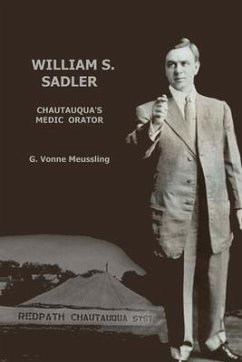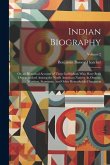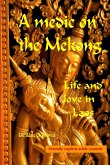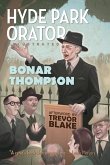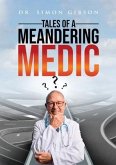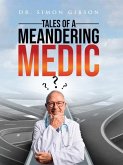Describes the life of Dr. William S. Sadler as a pioneer, sharing medical information with the public when the A.M.A. frowned upon it. The book focuses on his time as a speaker on the Chautauqua Circuit. Initially written by Dr. Vonne Meussling as her Ph.D. thesis in 1969, this is is a historical record of the Chautauqua itself, through the life of Dr. Sadler, with a cross section of the wide range of talents and professions in which Dr. Sadler was ahead of his time. [Note: This study of William S. Sadler (1875-1969), physician, surgeon, psychiatrist, professor, and author of forty-two books, investigates that phase of his career devoted to oratory. It concentrates upon the period 1905 to 1926 when he was a popular lecturer on Chautauqua platforms. It traces the influences which molded his public speaking interest, from a high school commencement address delivered at the age of eight to the decision to become a public lecturer. This was unprecedented in an era when concepts of the American Medical Association did not permit doctors to advertise. He was a student of Sigmund Freud, an associate of Alfred Adler, Karl Jung and John Harvey Kellogg. These associations were evidenced as influential factors in his career.The purpose of this study was to analyze rhetorically those elements of Sadler's speeches on preventive medicine, which governed his oral contributions. His message focused on the education of the masses so as to counteract public ignorance, medical quackery, and harmful patent remedies. The study revealed that audiences were eager for authentic health information. (The Urantia Book is not included in this work.)
Hinweis: Dieser Artikel kann nur an eine deutsche Lieferadresse ausgeliefert werden.
Hinweis: Dieser Artikel kann nur an eine deutsche Lieferadresse ausgeliefert werden.

